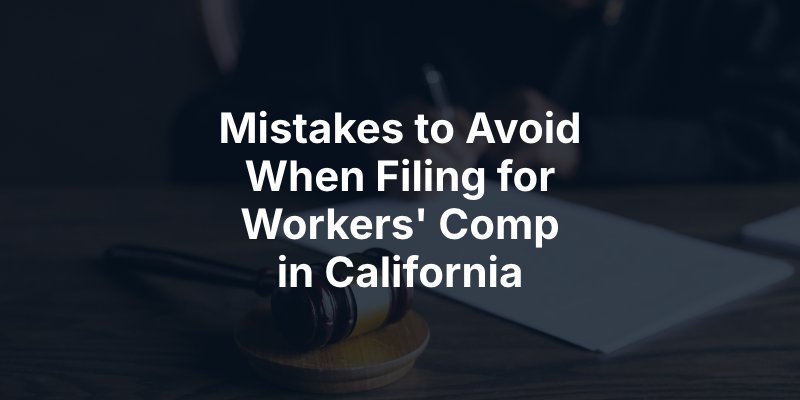When an employee suffers a job-related injury or illness, employers must handle the claim promptly, properly, and in accordance with the law. Unfortunately, many employees make the following costly mistakes.
Contact our Orange County workers’ compensation attorney to arrange a free consultation today.

California law requires employees to notify their employer of a job related injury withing 30 days. Employers are required to provide an injured employee with a workers’ compensation claim form (DWC-1) within one working day of learning about the injury. Employers must also report the injury to their insurance carrier within five days. Delays in reporting can result in increased liability, penalties from the Division of Workers’ Compensation (DWC), and potential harm to the employee’s recovery process.
One mistake employees make is assuming their employer has proper coverage. Every employer in California—even those with only one employee—is required to carry workers’ compensation insurance. Some small businesses, especially startups or family-owned companies, make the mistake of operating without coverage. This can result in severe penalties, including fines up to $100,000 and potential criminal charges. Before starting a job—especially with small businesses—make sure your employer carries workers’ comp insurance. If an uncovered employee is injured, the employer may become personally liable for all medical costs and lost wages.
Many employers try to reduce costs by classifying workers as independent contractors. If you’ve been labeled an independent contractor, you might not be eligible for workers’ comp. However, if these individuals perform employee-level duties and meet the criteria under California’s “ABC test,” they may legally qualify as employees entitled to workers’ comp coverage. Misclassification can expose the business to retroactive insurance premiums, legal claims, and steep penalties.
Some injured employees make the mistake of going silent after filing a claim. After an injury, employers must also engage in the interactive process to determine whether they can offer modified duties or a temporary light-duty position. Failing to communicate with the injured worker—or ignoring their work restrictions—can lead to disability discrimination claims, retaliation lawsuits, or additional workers’ comp liability. As an employee, submit updated work status reports, respond to requests for information, and be proactive in discussing modified work options.
If your employer punishes you for filing a claim, don’t stay silent. Retaliation includes firing, demoting, reducing hours, or creating a hostile environment. California law strictly prohibits retaliation, and employees can file claims for wrongful termination, discrimination, or emotional distress.
If you are an injured worker in California and your employer fails to report your injury, delays your benefits, misclassifies your role, or retaliates against you, you can take the following steps:
If your employer does not provide a claim form, you can still file a workers’ compensation claim by contacting the insurance company directly. You are not required to wait for employer approval.
You can report employer violations to the DWC and seek help through the Information and Assistance Unit. They provide free support to injured workers and can help resolve claim disputes.
If you face retaliation or believe your employer is uninsured, you can file a complaint with the California Labor Commissioner’s Office.
Our experienced Orange County workers’ comp attorneys at Aegis Law can protect your rights, help you gather documentation, and file a formal claim or appeal. They can also represent you if your employer refuses to cooperate or if you are denied benefits.